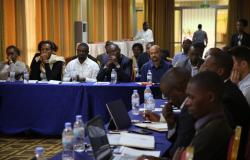
Government policies supporting the Sustainable Development Goals (SDGs) and sustainability criteria, as well as commercial goals, aim at an enabling multi‐actor environment. However, they do not prevent friction, lack of mutual understanding and cultural clashes with the private sector. We argue that this relational issue is a considerable and relatively neglected concern, albeit readily recognized by practitioners, and is potentially obstructing the achievement of the United Nations’ 2030 Agenda and the SDGs. It also deserves more scholarly attention. In articulating and discussing public–private relations, in this exploratory project we point to a theoretical challenge that touches on the ontological and epistemological core of international studies. Apart from analysing relevant literatures, we have benefited from varied data collection with input from policy makers, diplomats, business representatives and consulted experts across cultures. Our starting point is that public–private partnerships that are necessary to reach the targets of the UN's 2030 Agenda pose a test for ministries of foreign affairs (MFAs). These new kinds of SDG partnerships differ from early 21st‐century public–private partnerships (PPPs) in the field of development cooperation. Leaving aside risk factors facing companies in our research, we identify three main SDG partnership puzzles for government.
Policy Implications
-
Lessons can be learned from early 21st‐century PPPs, but SDG partnerships are different: they are universal in scope; more intrusive in terms of their impact on a multi‐stakeholder diplomatic process; and they aim at systemic innovation.
-
MFAs should welcome the SDG process as an opportunity for experimentation with innovation in networked diplomatic practice, based on the principle of trading resources within complex policy networks, which is of much broader relevance for diplomacy today. SDG multi‐stakeholder partnerships pose specific challenges for hierarchical work routines in foreign ministries. They call for greater context awareness of global issues, a more explicit whole‐of‐government approach and horizontal knowledge sharing.
-
Foreign ministries are advised to keep an eye on the changing environments in which SDGs are being debated: recent transnational trends associated with anti‐elitism and protectionism challenge the SDGs, while progressive digitization and the rise of information and communication technologies (ICTs) call for more government dialogue with the technology sector.
-
The private and public sectors evaluate SDG partnerships differently, creating the risk of a gulf between them when it comes to agreeing on details rather than general policies. Both should aim at improving qualitative partnership‐effectiveness indicators.
-
Government representatives need to be aware of the double‐hatted role of private‐sector companies combining their ‘public’ shareholder role with lobbying interests and practices that run counter to sustainable development principles.